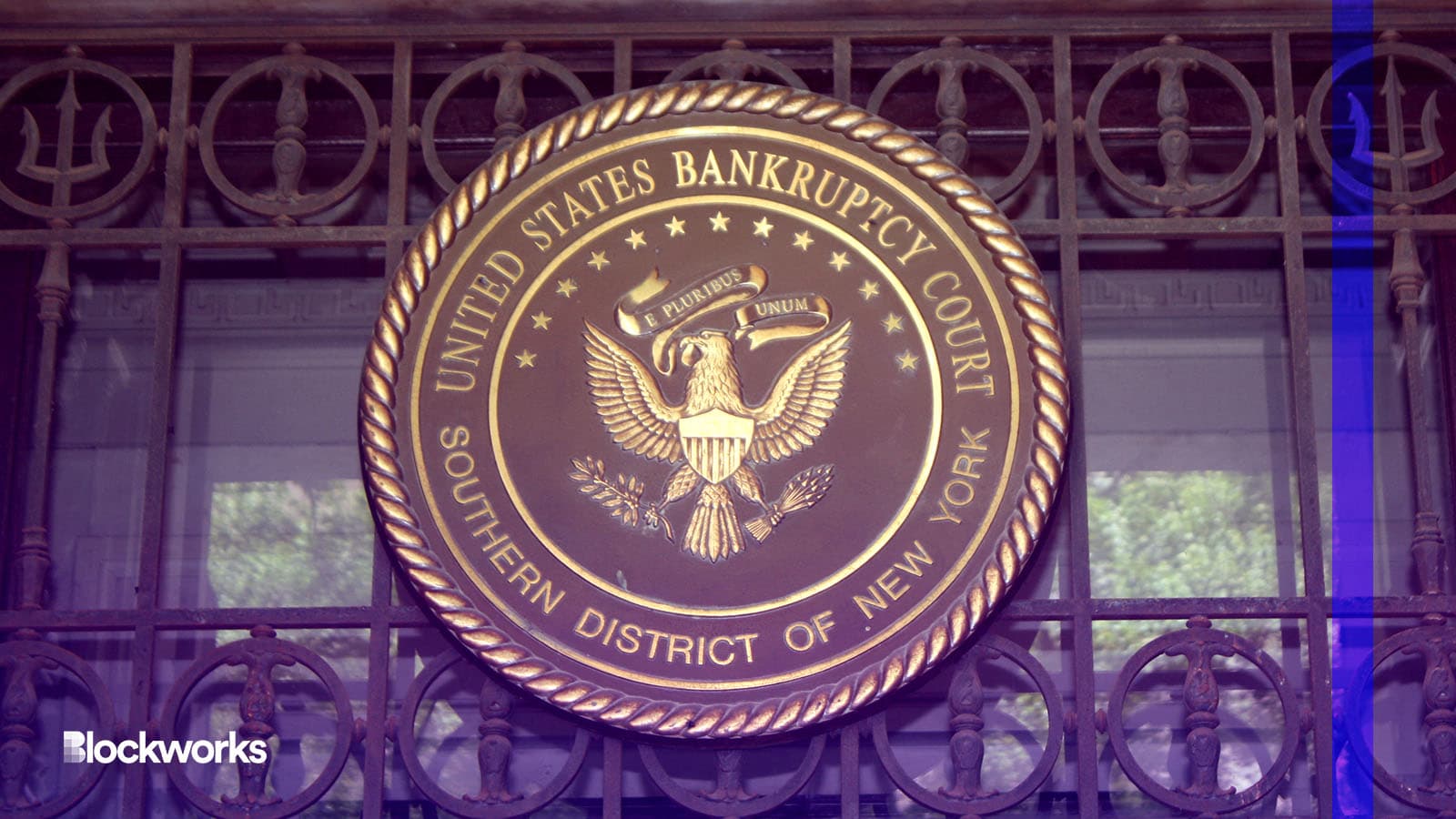Crypto Bankruptcy Proceedings Highlight Regulatory Shortcomings
Celsius, BlockFi and Voyager were among crypto’s biggest players to file for bankruptcy in 2022, legal expert says

Source: Shutterstock / JRRieger, modified by Blockworks
Celsius, BlockFi, Voyager and, most recently, FTX — plus its roughly 100 affiliated companies — all in 2022 tapped the US bankruptcy code’s Chapter 11 provision in an effort to reorganize their distressed business lines. Three Arrows Capital, meanwhile, filed under Chapter 15 in an effort to deal with insolvency and creditors on an international level.
As courts continue to determine the most efficient and cost-effective means to restructure — and, ideally, make creditors whole — regulators are set to watch the end results closely, according to Joe Acosta, a partner at the law firm Dorsey and Whitney.
“The recent bankruptcy filings of five major crypto companies, including Celsius, a lender, and FTX, an exchange, may bring to light the real nature of cryptocurrency: whether it’s an investment, a currency, digital asset or something else,” Acosta said.
What’s especially relevant is not only the outcome of the individual cases, but also the potential for precedent-setting judgements that could provide a legal and regulatory framework for the industry more broadly. Acosta said there have already been notable instances.
Celsius, once one of crypto’s most prominent lenders, filed for bankruptcy in July 2022 after halting withdrawals the month before, citing “extreme market conditions.” Earlier this month, the presiding judge ruled that tokens deposited in interest-bearing accounts belong to Celsius, not the customers. It could set the stage for the future of token classification and ownership regulation going forward, Acosta said.
“[Celsius’ bankruptcy] Judge [Martin] Glenn found that crypto is not — by the standing definition — a currency, because it is not a medium of exchange created, authorized or adopted by a domestic or foreign government, or by an intergovernmental organization or by agreement between two or more countries,” Acosta said.
When customers deposited crypto with the company before its bankruptcy, they were handing over something closer to a “digital asset,” the judge ruled, which the lender could then invest or transfer.
When it comes to FTX, the criminal proceedings against its former chief executive, Sam Bankman-Fried, add an extra layer of complexity, Acosta said. The allegations that customer funds were transferred to other investment vehicles, individuals and even politicians, according to Acosta, means recipients of FTX funds ought to now be on notice.
“Everyone is just waiting for the FTX bankruptcy estate to claw back many of these transfers,” Acosta said. “Claw backs generally are authorized under state and federal law, when an insolvent company makes transfers without receiving equivalent value. Many of the transfers made by FTX certainly seem like they can come back to FTX.”
It would not be the first time the clawback strategy has been used to make creditors whole. Marc Powers, a former securities law practice leader at Baker & Hostetler, said his firm was able to help recover $14.5 billion of the total losses stemming from Bernie Madoff’s Ponzi scheme, which totaled somewhere in the neighborhood of $18 to $20 billion.
“I do think [the Madoff case] is a similar situation to here,” Powers told Blockworks last month. “And I do think they will use the same sort of playbook utilizing US Bankruptcy Code clawbacks.”
Either way, the industry’s meltdown has only provided even more fuel to the fire for regulators that had already been advocating for more stringent oversight, Acosta said.
“Everyone knows that the crypto industry is not heavily regulated by the SEC, because crypto purists have, thus far, convinced the SEC that cryptocurrency is not an investment or security,” he said. “However, without regulation, you can see how customers can easily be duped.”
Get the news in your inbox. Explore Blockworks newsletters:
- The Breakdown: Decoding crypto and the markets. Daily.
- 0xResearch: Alpha in your inbox. Think like an analyst.






